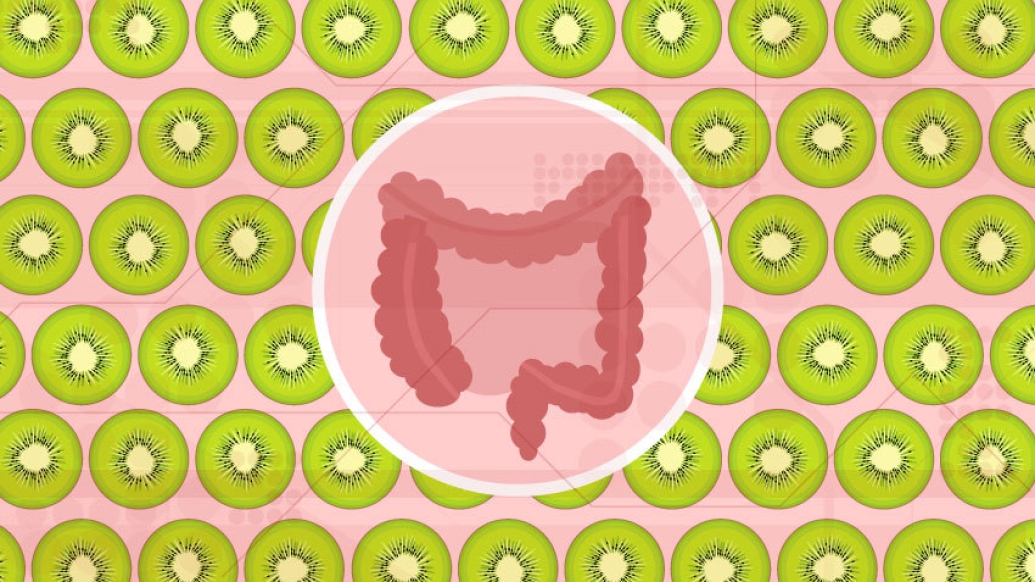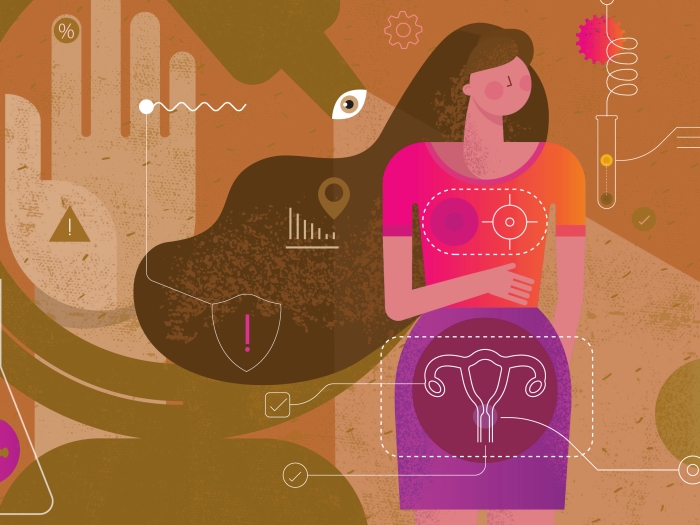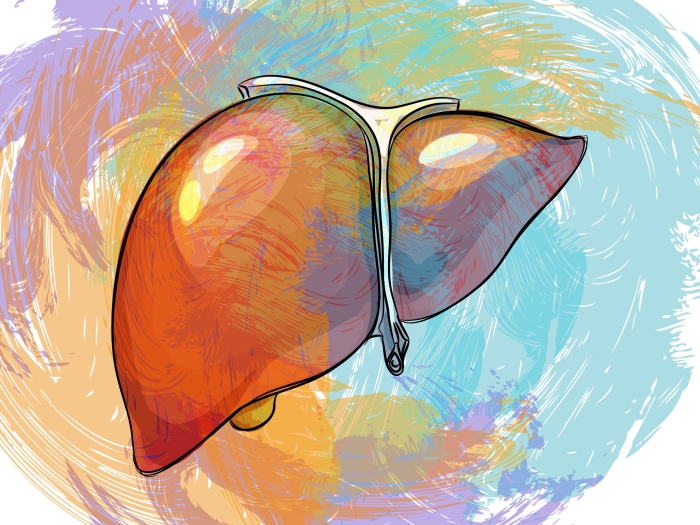A gastroenterologist teams up with his son to find out if kiwifruits measure up to prunes and psyllium when it comes to combatting chronic constipation.
9:09 AM
Author |

While many people associate constipation with discomfort, they might be unaware that it isn't a disease. Instead, it's a symptom often associated with another health problem. And according to the National Institutes of Health, constipation occurs in all ages and populations throughout the United States, with nearly 16% of adults showing signs of the condition.
William Chey, M.D., a professor of gastroenterology and nutritional sciences at Michigan Medicine, teamed up with his colleague, Shanti Eswaran, M.D., an associate professor of gastroenterology, and his son, Samuel Chey, MPH, who is a clinical research manager for the Michigan Medicine division of gastroenterology, to present their research on several fruits, including kiwifruit, as effective therapies for chronic constipation at this year's American College of Gastroenterology virtual meeting.
"While psyllium, which is a type of fiber made from the seed husks of the Plantago ovata plant, and prunes have both been proven effective as treatments for chronic constipation, several Asian studies have shown that fresh kiwifruit can also help individuals with this condition," says Samuel. "And many patients are interested in natural therapies. So, our study addressed a very common problem."
The research team conducted a study on three natural treatments for chronic constipation and found that while they all significantly reduced patient symptoms, prunes proved to be the most effective in alleviating symptoms, and kiwifruit produced the highest patient satisfaction scores.
"It was interesting to see that psyllium rivaled prunes in terms of effectiveness, but the rates of dissatisfaction among our study participants were twice as high for this therapy when compared to prunes, and five times higher than kiwifruit," says Samuel. "We found this to be pretty eye-opening."
In this study, 79 adults with chronic constipation were recruited and then assigned to consume 100 grams of pitted prunes, 12 grams of psyllium or two peeled kiwifruits daily for four weeks.
MORE FROM THE LAB: Subscribe to our weekly newsletter
"Prunes and psyllium proved to be the most effective at relieving individuals from chronic constipation. And among the patients assigned to these treatments, the goal was reached by 67% and 64%," says Samuel.
Of the patients assigned to kiwifruit, 45% received relief from their chronic constipation. Although this was lower than prunes and psyllium, there was no statistically significant difference in the likelihood of responding to the three treatments. Other outcomes also supported the effectiveness of these natural treatments, including the average number of bowel movements each week. This number almost doubled with kiwifruit and more than doubled with psyllium. It nearly tripled with prunes.
"Stool consistency improved from baseline for all patients in the kiwifruit and prune groups, but the numbers for the psyllium group were not that notable," says Samuel.
But he also says that the treatments still rendered some negative effects. For psyllium, 33% of patients complained of abdominal pain, while 19% complained of gas.
For prunes, bloating was the most common patient complaint at 36%, followed by gas at 18% and abdominal pain at 18%. But for kiwifruit, only 11% of patients complained of bloating and no patients reported having gas or abdominal pain.
"Overall, 48% of patients in the psyllium and prune groups were happy with their treatment, while 68% expressed satisfaction with kiwifruit," says Samuel.
William adds that this study confirms other research that has reported the benefits of consuming prunes and psyllium in patients with chronic constipation.
Like Podcasts? Add the Michigan Medicine News Break on iTunes or anywhere you listen to podcasts.
"Though kiwifruit has been tested in studies from Asia, this study is the first to have evaluated kiwifruit in constipated patients from the United States," says William. He also notes that most people do not realize that medications for chronic constipation aren't usually successful. In fact, he says that "they traditionally help fewer than half of patients and only offer about a 7% to 15% therapeutic gain over a placebo."
"Things like cramping, bloating and diarrhea are not uncommon when taking these types of medications," he adds. "This may be why patients are asking for natural products at higher and higher rates."
In the future, the father-son team hopes to explore a broader range of foods as potential therapies for chronic constipation.
"We are considering additional fruits, such as papaya, or a combination of fruits in things like smoothies," says Samuel. "Based upon learnings from this study, I think we can design types of fully randomized trials that will provide an evidence-basis for natural treatment choices."
This research was presented at ACG 2020 Virtual Meeting.
Disclaimer: This study was funded in part by kiwifruit producer, Zespri. Relevant to this study, Chey reported serving as a consultant for Abbvie, Arena, Bayer, IM Health, Ironwood, Takeda and Vibrant.

Explore a variety of healthcare news & stories by visiting the Health Lab home page for more articles.

Department of Communication at Michigan Medicine
Want top health & research news weekly? Sign up for Health Lab’s newsletters today!





